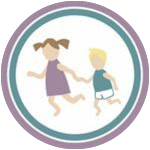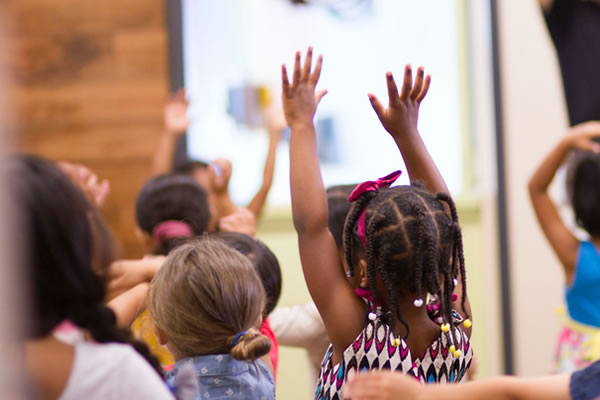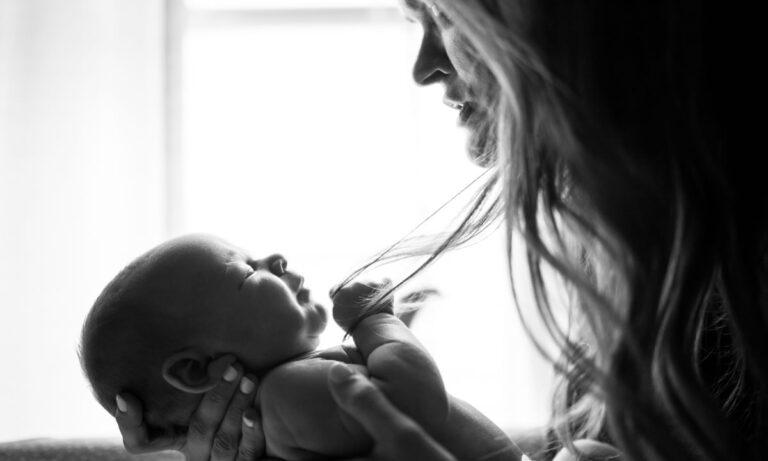My husband and I are often complimented on our children’s behavior and demeanor. People think that we discipline them. We don’t. It is ourselves we discipline.
We meet our children’s needs, provide for their protection, and expose them to life’s possibilities. We do not, however, meddle in their play, their learning, their creativity, or any other form of growth. We love, hug, feed, share, listen, respond, and participate when asked. Yet, we keep our children free of insult and manipulation resulting from “helpful” comments and ideas – influences to which children are so sensitive in their state of dependency.
Parental Self-Discipline
This type of discipline is not easy. Not only does our society not support it, but the temptation to break the “rules” lives within us. The drive to intervene in children’s activities is rooted in our upbringing and reinforced in our culture.
For me, the most difficult challenge to overcome has been a narcissistic impulse to show off my children. One day, when our oldest child was two years old, he played a smooth scale on the piano. I was amazed, yet held fast to my rule and stayed out of his way. Free to play out of his own love and interest, and not to gratify me, he went on improving his scale with tremendous joy and concentration for quite some time. Not until my husband came home did I fall into the trap. Unable to wait for a repeat performance in its own time, I covertly tried to direct our son to the piano to do his “trick.”
Untrained in doing for the sake of pleasing, he was not fooled. He sensed the hoax and refused to play. Several weeks passed before he again immersed himself in the scale. This child loves to do things for others, and enjoys helping and serving; yet, when he does something out of self-interest, that is how it must remain.
Although the self-discipline required of a parent is often challenging, it becomes second nature with time and experience. For me, this type of discipline developed gradually, beginning with “descriptive acknowledgment” and culminating in unadulterated staying-out-of-the-way a few years later. My best allies have been my realizations as a mother and educator, Daniel Greenberg’s book Free at Last, and discussions with Jean Liedloff, author of The Continuum Concept, about letting children be themselves.
At first, I thought that commenting, acknowledging, and praising children for their achievements express love and build self-esteem. In time, I realized that these well-intended interventions do just the opposite: they foster dependency on external validation and undermine the children’s trust in themselves. Children who are subjected to endless commentary, acknowledgment, and praise eventually learn to do things, not for their own sake, but to please others. Gratifying others soon becomes their primary motivation, replacing impulses stemming from the authentic self and leading to its loss.
Contrary to common belief, children feel more loved and self-assured when we do not intervene in their activities. Not only do they remain secure in our love and support when we refrain from intervening, but they need us to protect them from these intrusions, which can interfere with their progress, self-reliance, and emotional well-being.
When we intervene with praise, wants, advice, and rewards, doubts sneak in and shake loose our children’s trust in themselves and in us. Sensitive and smart, they perceive that we have an agenda – that we are manipulating them toward some preferred or “improved” end result. This awareness gets them thinking: “Perhaps what I am trying to achieve is wrong – I can’t trust myself to know or choose,” or “Mom and Dad have an agenda that I must fulfill if I am to have their approval and their love.”
Gradually, a shift occurs. Children who were once doing it for the sake of personal pleasure or understanding begin doing it for the sake of pleasing. No longer do they trust in their actions, and no longer do they trust us, for we are not really on their side. Along with the shift to pleasing us comes the fear of not pleasing us. Emotional and intellectual dependency, low self-esteem, and lack of self-confidence invariably follow.
Even when we intervene with casual commentary on our children’s imaginative play, doubts sneak in. What children are experiencing inwardly at these times is so often remote from our “educated” guesses that bewilderment soon turns to self-denial and self-doubt. Moreover, children perceive the phony and patronizing remarks for what they are and may conclude that it is OK to be insincere and pretentious.
From Praising to Observing
It is difficult to stop dishing out praise. For one thing, we are hooked on our conditioning as well as on the “hard sell” of the holy cow called Praise. For another, we have easily misled: the praised-for-every-achievement child seems like a happy, successful, highly self-esteemed child. In reality, such a child has shifted to the pleasing mode, driven to success not by personal curiosity or delight, but by the desire to oblige us and live up to our expectations. As educator John Holt has said of children, “They are afraid, above all else, of failing, of disappointing or displeasing the many anxious adults around them, whose limitless hopes and expectations for them hang over their heads like a cloud.” In short, the esteem we notice is not self-esteem, for the self has been lost in the early years of this type of conditioning. The happiness we see is not pleasure, but rather relief that another pleasing act has been accomplished, securing parental approval (emotional survival) and concealing a feeling of deep loss.
Children, too, can be fooled into believing that these pleasing behaviors originate within and have everything to do with who they are. The ultimate deception comes when children grow up to become seemingly accomplished and happy adults. Psychoanalyst Alice Miller, in her book The Drama of the Gifted Child, gives voice to the lamentable conviction that arises: “Without these achievements, these gifts, I could never be loved… Without these qualities, which I have, a person is completely worthless.” Miller goes on to explain why achievement based on pleasing denies self-understanding and, in so doing, leads to depression, feelings of ‘never enough’, and other emotional disturbances in often the most successful people.
To “follow one’s own drummer”, a person needs to exercise the muscles of free choice and self-learning from the start. The difficulty we have in trusting our children’s ability to flex these muscles stems from our own experience of not having been trusted. Trusting is, simply, not natural to us. Only as we make a concerted effort to get out – and stay out – of our children’s way do we discover the wonderful truth: the magic is already in our children, ready to unfold in its own way and in its own time.
Nearly every child comes to life equipped with a self that is capable of blooming to capacity. Unhindered in its growth, this self will lead the child to skills and knowledge and, in the process, self-actualization. We have no right to attempt to control the direction of this growth. Instead of training our children through various forms of intervention to fit our vision for them, we need to train ourselves to respect nature’s creation and to safeguard its full, authentic bloom.
Indeed, the end result we are looking for – an able, highly self-esteemed, creative, curious, and responsible human being – is already observable in a two-year-old child. Allowed to put these gifts to use in a self-directed, self-trusting way, the youngster will develop capabilities while enhancing these desirable qualities. Maturation will then come as an authentic expression of the self, rather than as an appeasement to parental authority and other forms of domination.
Getting out of the way gives us an opportunity to become curious observers. At the same time, it frees us of power struggles and initiates an approach to parenthood that is infinitely more enjoyable and fulfilling. I know of no more interesting, engaging, fascinating, and glorious “entertainment” in life than watching children unfold freely.
©Copyright Naomi Aldort
1 Adele Faber and Elaine Mazlish, How to Talk So Kids Will Listen and Listen So Kids Will Talk (New York: Avon, 1980), pp. 171-200.
2 John Holt, How Children Fail (New York: Pitman Publishing, 1964), p. xiii.
3 Alice Miller, The Drama of the Gifted Child (New York: Basic Books, 1983), p. 104.
4 Daniel Greenberg, “A Paradigm Shift in Education”. An audiocassette available from The Sudbury Valley School Press in Framingham, MA.
For More Information:
Greenberg, Daniel. Free at Last. Framingham, MA: Sudbury Valley School Press, 1987.
Holt, John. Escape from Childhood. New York: E. P. Dutton, 1974.
Holt, John. How Children Learn. New York: Dell, 1972.
Holt, John. Learning All the Time. Reading, MA: Addison-Wesley, 1989.
Liedloff, Jean. The Continuum Concept. Reading, MA: Addison-Wesley, 1986.
This article originally appeared in Mothering, Issue 71, Summer 1994.










